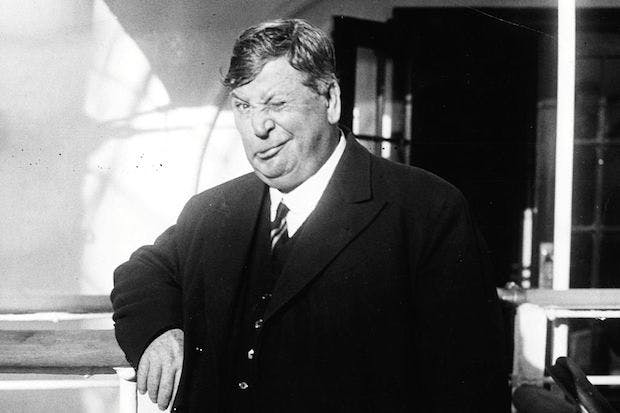‘Very funny, I don’t think,’ said my husband when I mentioned Harry Tate, although Tate died in 1940 and even my husband wasn’t going to the music hall then. But one of Tate’s catchphrases, How’s your father, has just been put into the Oxford English Dictionary.
What does it mean? Many people nowadays will answer ‘rumpy-pumpy’ or some such low euphemism. When Tate popularised it, in 1915 or before, it was just a piece of nonsense to make his act more absurd, like Tiddy Doll the gingerbread seller drumming up trade 100 years earlier: ‘Mary, Mary, where are you now, Mary? I live, when at home, at the second house in Little Ball-street, two steps under ground, with a wiscum, riscum, and a why-not….’
Tate had a song in which the chorus went: ‘How’s your father? All right?’ My husband tells me of vulgar supplementary lines: ‘How’s your mother? Half tight. How’s your sister? She might.’ But how’s your father also caught on as an equivalent of what-d’ye-call-it, whatchamacallit, thingumajig or thingummy. Such words can serve as euphemisms. Thingummy was used as long ago as 1737 to explain a lewd joke by Rabelais. How’s your father, though, is first documented as a euphemism in something Alan Coren wrote in Punch as recently as 1968. Even today it can be used innocently in the sense ‘what-d’ye-call-it’.
A writer for the Boston Globe who noticed how’s your father as a catchphrase in 1915 called it a ‘people’s quip’, like Keep your hair on, Have a banana or I don’t think. Keep your hair on is quoted by the OED from a novel by F. Marion Crawford (an American man) from 1883, though Jonathon Green in his 2,204-page Dictionary of Slang finds it as ‘keep on yer hair’ in Punch from 1879. Have a banana is not sung in the recording made in about 1910 by Harry Fay of the music-hall song ‘Let’s all go down the Strand’, written in 1909.
I don’t think is far older, known in the 1820s and used by Sam Weller in Pickwick (1837): ‘You’re a amiably-disposed young man, Sir, I don’t think.’ Since the Wayne’s World film (1992), it has widely been replaced by not. That’s a great improvement, I don’t think.
Got something to add? Join the discussion and comment below.
Get 10 issues for just $10
Subscribe to The Spectator Australia today for the next 10 magazine issues, plus full online access, for just $10.















Comments
Don't miss out
Join the conversation with other Spectator Australia readers. Subscribe to leave a comment.
SUBSCRIBEAlready a subscriber? Log in